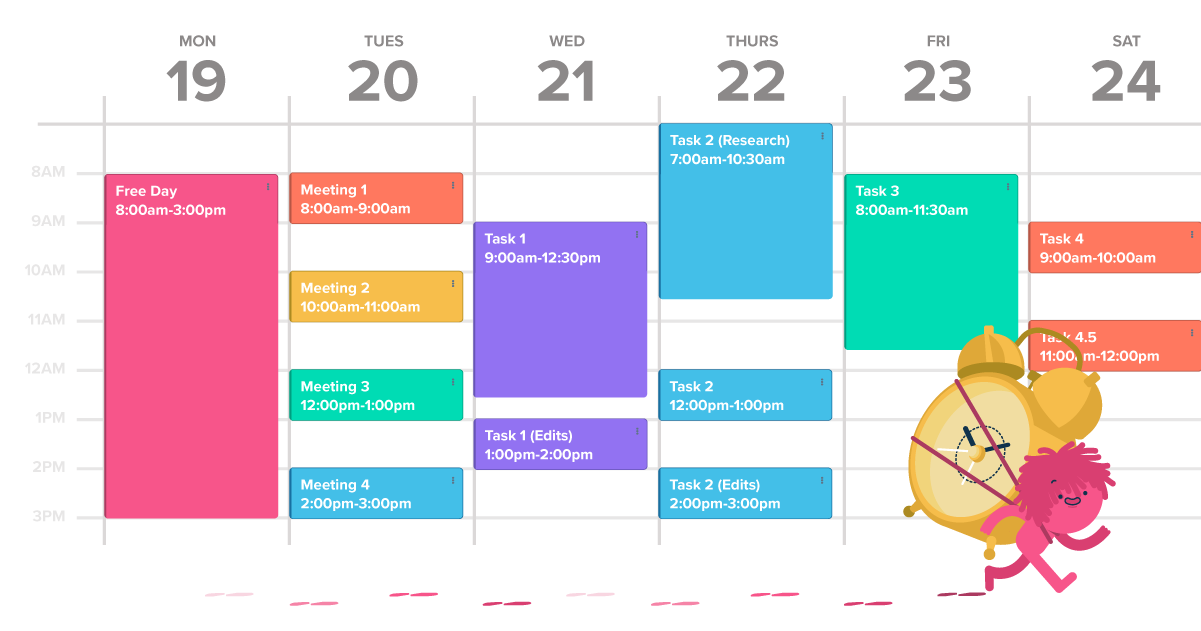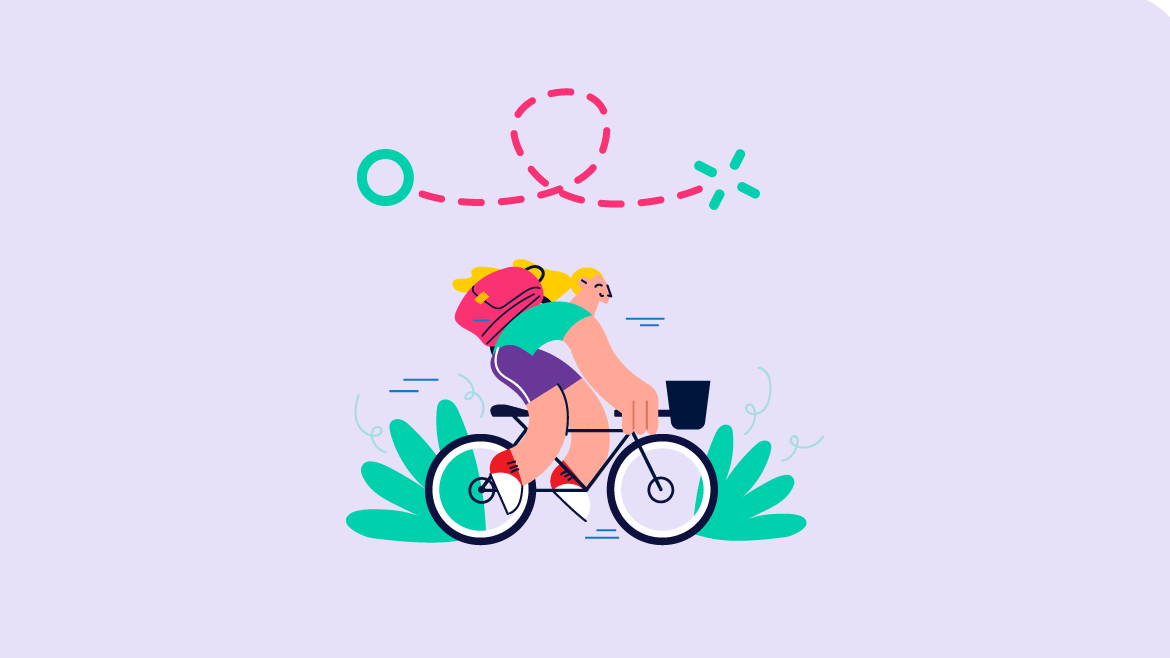Self-Optimization – Meaning Shifts and Examples
Self-optimization is one of those terms that the world has stolen from technology. Because I am not an expert in telecommunications, I will borrow the widely-used definition: ‘Self-optimization is a process in which the system’s settings are autonomously and continuously adapted to the traffic profile and the network environment in terms of topology, propagation and interference’ (Roberts, Thormann and Shanmugam 2010).
That’s a lot of words, but, in layman’s terms, self-optimization is an internal process that adapts your phone network in a way that would give you the best service. So, no worries about poor signal, huh?
The meaning of self-optimization you’re more interested in is close enough – to self-optimize, you’re looking for actions and behaviours that promise to improve your physical and mental health, making your life more fulfilling. Self-optimization is achieved through setting a series of goals and relishing in the sense of accomplishment and improvement you see on the way.
Some examples of self-optimization include exercising regularly, taking care of your diet, and getting enough sleep, all with the aim of making your body and mind more effective against fatigue, a bad mood, and even illnesses.
Self-Optimization – The Psychology of Self-Improvement
Self-optimization is all about becoming your best self. From a psychological standpoint, it’s all about addressing your habits and tracking certain behaviours to find the root cause of an issue, health problem, or other impediments to your happiness. For example, if you keep failing the same exam repeatedly, you should see what you might be doing wrong or whether you need additional help.
Optimizing yourself is, in a way, a process of cognitive problem-solving – you think about solutions and apply them, and the feedback you get indicates success or failure and how you should proceed. As such, it’s a result of practising self-awareness and decision-making to achieve your best life.

Biohacking – The Current Self-Optimization Trend
Do you know how sometimes a celebrity says something (generally backed only by themselves), and it instantly becomes a trend? Well, it seems that the Norwegian footballer Erling Haaland spouted out his biohacking idea to explain his great accomplishments on the field.
Biohacking includes all actions meant to improve your body and range from highly superficial strivings (weight loss) to preventing injury and illness. Haaland, for instance, uses special glasses to filter out detrimental blue lights from his screens in order to sleep better. While this is certainly laudable, I highly doubt many of us can afford too much high-tech equipment.
Simpler and More Feasible Ways of Biohacking
Instead of spending money you probably don’t have as a student, here are some simpler ways to biohack your way to your best life!
- Getting enough sleep. I don’t need to say it because you already know about the famous eight hours, sleeping in a cool room, and not being on your phone before bed.
- Nutrition. Here’s a topic that is always at the centre of health professionals’ thoughts. The benefits of eating healthy are irrefutable – you will feel more energised, avoid many illnesses, and recover from workouts faster. To optimise your nutrition, eat lean proteins, healthy fats (nuts, seeds, avocado), and lots of fruit and vegetables. Avoid ready-made meals and packaged and processed foods.
- Exercise. Experts recommend at least 30 minutes of aerobic activity five times a week to keep yourself and your organs fit. If you don’t exercise, it’s high time you started because the many benefits of physical activity are worth it.
- Stress-management. It’s important to have good coping strategies for stressful situations in your life. Sports, puzzles, reading, meditation, and yoga are some preferred ways of dealing with stress.
- General health. Whether we like it or not, we’re still in the midst of a pandemic (despite loosening government measures), so you should still practise caution. Keep your hygiene in check, avoid too many crowds, and, yes, wear your mask.
Are We Obsessed with Self-Optimization?
People are motivated by the idea of self-improvement and personal development. The notion is that you can implement certain practices in your daily routine that’ll give you an extra efficiency and efficacy boost, but the hidden danger of this mindset is the inability to tell when good intentions become obsessions.
For instance, you may decide you want to lose weight. Great. You get some new gear, start going to the gym, and even see pleasant results in your physique, so you get all fired up for more. And suddenly, you find yourself in the flurry of tracking macros and calories, estimating how much you eat and burn, exercising for hours on end, eating less, and endangering your health. What for? A very superficial and unsustainable goal. (If your medical advisor suggests weight loss, there are more moderate ways to do it).
It’s the same with anything you can track and mark with numbers. For example, there are apps tracking your sleep, counting steps for you, estimating your productivity … the list goes on, but where does it go? What’s the point of becoming so consumed by numbers that you forget to live and enjoy the present moment? Finding a middle-of-the-road approach to your physical and mental well-being is key to success.
Striking the Balance – Self-Optimization vs Self-Care
Let me preface this by saying that it’s admirable to wish to improve and develop. We are social beings motivated to change and evolve (that’s how we got this far, after all), but we shouldn’t be too concerned with self-optimization only.
There are many ways to work on yourself: How about travelling? Reading, listening to music, or watching something you enjoy? Even niksen? Relaxation is as important as hard work because it is what ultimately fuels your efforts. If you never take a break or a moment to do something for yourself just because, you’re on a fast track to poor performance and an even poorer mood.
Better Ways to Optimize
- Fitness and nutrition. For example, since we’re bashing fitness and dieting trends, here are some sustainable tips. You can improve your overall fitness, lose weight, tone up, and improve your health by starting to move and finding what works for you. Reduce processed foods (no need to cut anything out, health is about balance) and add more fresh produce to your diet, and you’ll see results in no time. Spare yourself the drama of counting and recounting – it’s not worth it.
- Mental health. We tend to forget about our minds’ well-being in this fast-paced reality that graces our lives. Seek therapy or medication to help you cope with those demons you cannot fight on your own.
- Reading. I believe this one is self-explanatory. Reading opens up millions of worlds and knowledge databases. Non-fiction will broaden your horizons, and fiction is shown to improve empathy and imagination. ‘Nuff said.
- Focusing on strengths. Instead of constantly zooming in on your weaknesses, you can focus on your strong points and improve those. Fixing weaknesses only gets you to the average – working on strengths yields greatness.
- Crafting and checking your reality. This one is tricky. I’m not saying you should start a personal cult or live convinced of half-baked conspiracy theories, but I do mean that you can practise cognitive re-wiring. Improve your mindset, focus on the positive, and, most importantly, remember not to compare yourself to others, especially not the stuff you see on social media. Social media is filtered, edited, and curated, and someone’s highlights are not a measure for comparison with your daily reality.
The best way to go about it all is to set two or three goals for yourself, with ample time to achieve them. Anything more, and you’ll be overwhelmed. Increase the quality of your life by taking care of your needs first. Optimizing yourself is a form of self-care, that’s undeniable, but self-care is also about choosing to be gentle with yourself, even lazy at times when you need rest more than assiduousness. So, cheers to being nice to yourself.

Best Self-Optimization Books
If this is all too much or too little to go on, there are some highly-acclaimed books to help you improve your quality of life:
- James Clear – Atomic Habits: An Easy & Proven Way to Build Good Habits & Break Bad Ones
- Cal Newport – Deep Work: Rules for Focused Success in a Distracted World
- Viktor E. Frankl – Man’s Search for Meaning
- Rutger Bregman – Humankind: A Hopeful History
- Melinda French Gates – The Moment of Lift: How Empowering Women Changes the World
- Jake Knapp – Make Time: How to Focus on What Matters Every Day
Self-Optimization – The Takeaway
Self-optimization is all about setting a goal that will lead to the improvement of some habits and your physical and mental well-being with a view to increasing your quality of life. The best ways to do it include
- regular exercise,
- healthy diet,
- getting enough sleep,
- managing stress,
- not obsessing with self-improvement, and
- taking care of yourself
With that said, take some time to check in with yourself today and listen to your body and its needs. If you are motivated to work hard, go for it, but if you feel sluggish and tired, find some time to rest and recharge. Be your best self today, and remember that your best can be in bed with comfy socks and blankets or a full-on corporate juggler with a billion things on the to-do list. Whatever it takes, work on yourself, and the results will follow!
Frequently Asked Questions (F.A.Qs)
The best way to optimize yourself is to introduce healthy habits such as regular exercise, a healthy diet, and stress-management techniques.
Self-optimization is a series of goals and actions you perform to improve your overall quality of life. It ranges from managing time and stress to fitness goals to intellectual pursuits.
To evolve and keep changing for the better, we optimize. If you refuse to acknowledge your shortcomings, you cannot change them, and you end up stuck in the same place. Instead of that dull prospect, you can always work on yourself in many different areas and make sure you’re living your best life while being your best self.
How we ensure our content is accurate and trustworthy?
At StudySmarter, we have created a learning platform that serves millions of students. Meet the people who work hard to deliver fact based content as well as making sure it is verified.

Gabriel Freitas is an AI Engineer with a solid experience in software development, machine learning algorithms, and generative AI, including large language models’ (LLMs) applications. Graduated in Electrical Engineering at the University of São Paulo, he is currently pursuing an MSc in Computer Engineering at the University of Campinas, specializing in machine learning topics. Gabriel has a strong background in software engineering and has worked on projects involving computer vision, embedded AI, and LLM applications.
Get to know Gabriel




